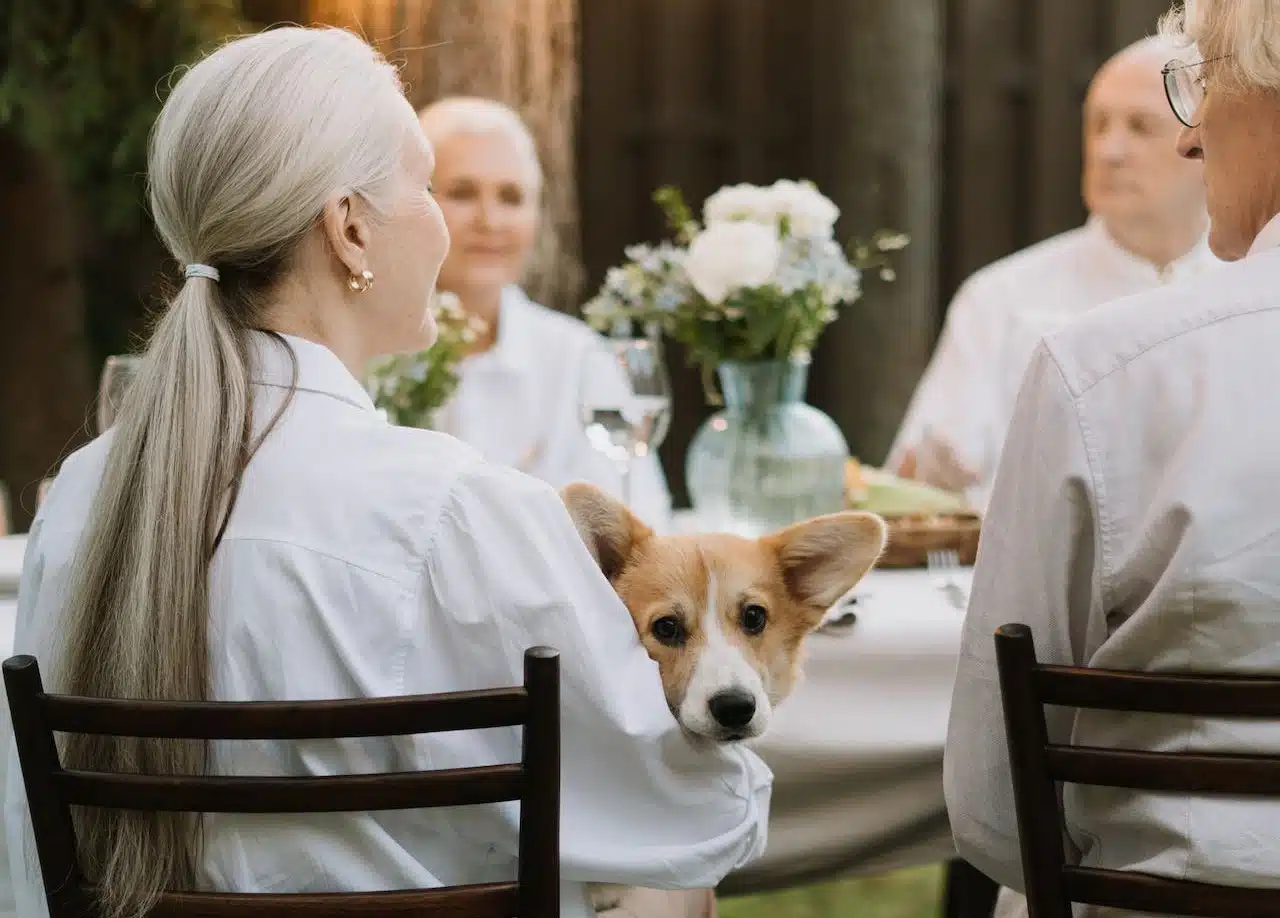Home » Blog » Pet » Pets: Understanding Them » Meet the Brussels Griffon: Your Cutest Companion
Categories
Tags
animal welfare
breed profile
buying a car
buying a pet
Car
car accessories
car care
car features
car insurance
Car safety
car sales
car service
cat
cat behaviour
cat body language
Cat Breeds
cat food
cat insurance
comprehensive car insurance
Dog
Dog Behaviour
dog body language
Dog Breeds
dog food
Dog Insurance
dog training
eco friendly cars
Kitten
New Car
pet accessories
pet activities
Pet Adoption
pet breeders
pet days of the year
pet fun stuff
Pet Health
pet insurance
pet parenting
Pet Safety
pet services
Puppy
rescue pets
road safety
road trip
safe driving
Recent Blog:
Facebook Posts
2 days ago
Growing old sometimes means we can’t take care of pets anymore. Find out some advice on what to do when this happens:![]()
![]() Senior Pet Parents – Contingency Plans for Your Pet – bit.ly/44bzwkS
... See MoreSee Less
Senior Pet Parents – Contingency Plans for Your Pet – bit.ly/44bzwkS
... See MoreSee Less
Senior Pet Parents' Contingency Plans for Pets
www.pd.com.au
Sometimes senior pet parents need more downtime. For older pet owners, this can be tricky to navigate if their dog or cat is full of beans and wants to4 days ago
Before you rev up the engine, let’s run through a checklist of things to do before starting your car. Not only do these steps ensure your safety (and that of others around you), but they also help in maintaining your vehicle's longevity.![]()
![]() Driving Tips: Your Checklist Before Starting Your Car -
... See MoreSee Less
Driving Tips: Your Checklist Before Starting Your Car -
... See MoreSee Less
Driving Tips: Your Checklist Before Starting Your Car
www.pd.com.au
Heading out for a drive? Hold up a second! Whether you're dashing off to work, running errands, or embarking on a road trip adventure, there are a few1 week ago
Are intestinal worms setting up camp in your dog’s gut without paying rent? Here’s how to spot the main culprits and get rid of them too:![]()
![]() Preventing, Identifying and Treating Intestinal Worms in Dogs - bit.ly/43YjCKu
... See MoreSee Less
Preventing, Identifying and Treating Intestinal Worms in Dogs - bit.ly/43YjCKu
... See MoreSee Less
Preventing, Identifying and Treating Intestinal Worms in Dogs
www.pd.com.au
Intestinal worms, such as roundworms in dogs are one of the least glamorous topics on the planet. These intestinal parasites that basically use our dogsGot your eye on a Griffon dog? With their uniquely squashed faces that are almost human-like (minus the fur!), the Brussels Griffon is a hit among pet parents. They really pack a big personality into a tiny body. Perhaps a Griffon would be ideal for your next family member… Let’s take a look at why or why not.
In this article, we delve into the world of the Brussels Griffon, exploring their origins, price, health and grooming needs, and why they can make such delightful pets. Whether you’re a potential Griffon owner or simply a dog enthusiast, join us as we uncover the endearing qualities of these captivating canines.
In this article
Brussels Griffon dog origins
It’s all in the name! The Brussels Griffon, as it’s commonly known outside of Belgium, has a heritage deeply rooted in the streets of Brussels, Belgium, dating back to the 19th century. These charming little dogs were originally bred from a mix of the Affenpinscher, the Pug, and perhaps the English Toy Spaniel, which contributed to their distinctive appearance and spirited personality.
The Griffon’s ancestors were primarily kept by cab drivers and working folks in Brussels to keep the stables free of rats and other vermin, showcasing their tenacity and fearlessness from the start.
Their charm and unique looks eventually caught the eye of the Belgian nobility. By the end of the 19th century, the Griffon Bruxellois had transitioned from a working-class dog to a favoured companion of the elite, enjoying a place in the laps of ladies and in the studios of artists.
Now, the Brussels Griffon is cherished not just for its historical significance but for its companionship and unique personality. While not as widespread as some breeds, Griffons have a loyal following and continue to charm their way into the hearts of dog lovers around the world.
Brussels Griffon personality
Griffons are the epitome of a “big dog in a small body,” showcasing confidence and a certain fearlessness that belies their diminutive size. These dogs form incredibly strong bonds with their humans, often showing a level of affection and loyalty that makes them excellent companions.
They’re known for being particularly expressive, too. Not just with their adorable, almost human-like faces, but through their actions and behaviours, which can range from comedic to endearingly stubborn.
Despite their small stature, Griffons have a hearty dose of self-esteem. They can sometimes forget just how small they are, especially when confronting larger dogs or new situations. This bravery makes them delightful, though it means they sometimes need protection from their own fearless inclinations.
A clever companion
Their intelligence is another highlight, making them responsive to positive reinforcement training, though they do have a streak of independence that can make consistency and patience key. They thrive on interaction and do best with reward-based training techniques, reviling in the attention and treats that come with learning new tricks.
However, their need for companionship makes them prone to separation anxiety if left alone for long periods.
They’re happiest when they’re part of the action, whether that’s a family gathering or a quiet evening at home. This social nature makes them great for families or individuals who can devote a significant amount of time to them, ensuring they feel loved and integrated into daily life.

How much is a Brussels Griffon?
Getting a Brussels Griffon in Australia can be a bit of an investment. These adorable little pups aren’t exactly what you’d call cheap. At the time of writing, you’re looking at around $2,000 to $4,000 and sometimes even more, depending on what you’re after.
This price range can vary a lot because it really depends on the breeder, whether the dog comes from a show-winning lineage, and if all its health checks and vaccinations are up to date.
Because they’re not the most common breed around, finding a Griffon can sometimes feel a bit like a treasure hunt. When you do find a breeder, there’s a good chance you might end up on a waiting list. But, let me tell you, for many Griffon lovers the wait and the price are totally worth it for the joy and companionship these little characters bring.

Brussels Griffon health
Griffons are typically healthy dogs, but they do have a predisposition to certain genetic health conditions. Being aware of these potential issues is crucial for any Griffon owner.
Brachycephalic syndrome
Griffons are one of the brachycephalic breeds, meaning they were bred to have flat noses. So, they may face breathing difficulties. This condition is something to watch out for, especially in warmer climates or during intense play.
Syringomyelia
This serious condition involves the development of cavities within the spinal cord. It can be painful and manifest as sensitivity around the neck area, requiring veterinary attention for management.
Eye problems
Their large, expressive eyes are prone to issues like dog eye infections and conditions like ulcers and cataracts. Send them for regular eye check-ups to ensure you catch and treat any problems early.
Hip dysplasia
Though less common in small breeds, Griffons can still be affected by hip dysplasia, a condition where the hip joint doesn’t fit together perfectly, leading to potential discomfort and mobility issues.
Luxating patella
A common issue in small dogs, luxating patella involves the kneecap slipping out of place. It can range from mild to severe, with some cases requiring surgery.

How to groom a Brussels Griffon
Grooming a Brussels Griffon is like a little art project that keeps them looking their quirky best. Whether you’ve a rough or smooth-coated Griff, here’s how to keep them in tip-top shape:
Rough-coated Griffon
- Brushing: This little furball needs regular brushing about a couple of times a week, to keep their coat free from mats and tangles. A good slicker brush or a metal comb works wonders.
- Trimming: They don’t need haircuts like some breeds, but you’ll want to trim around their face, feet, and rear end to keep them looking neat. It’s kind of like giving them a tidy-up, so they don’t end up looking like a shaggy mess.
- Bathing: Rough Griffons don’t need baths too often. Once a month or so should do it unless they’ve turned into a mud magnet. Use a gentle dog shampoo to keep their skin and coat healthy.
- Beard care: Their adorable little beard can get dirty from eating, so it’s a good idea to clean it regularly. Just a quick wipe or a wash can keep it looking spiffy.
Smooth-coated Griffon
- Brushing: They have an easier coat to manage, but still benefit from weekly brushes to remove dead hair and distribute skin oils. A soft bristle brush or grooming mitt is perfect.
- Bathing: Like their rough-coated cousins, they don’t need frequent baths. A monthly scrub down will keep them smelling fresh and clean.
- Nail trimming: Regardless of coat type, keeping their nails trimmed is a must to avoid discomfort while walking or playing.
For both types
- Ear cleaning: Clean their ears regularly with a vet-approved ear cleaner to prevent a dog ear infection. Those cute ears can trap dirt and wax.
- Dental care: Brush their teeth regularly to prevent dental issues. Daily is ideal, but a few times a week can make a big difference. Check out our guide on dog teeth cleaning for more.
- Eye care: Keep an eye on their eyes (pun intended)! Griffons can have weepy eyes, so gently wiping the area with a damp cloth helps keep goop at bay.

Insure your gorgeous Griffon
PD Insurance dog insurance cover a wide array of furry friends, from a Brussels Griffon to a Burmese. And while it’s there to help ensure your pooch can get the treatment they need, it’s really protecting you and your finances.
In case of emergency medical surgery, treatment or medication, you shouldn’t be worrying about the cost. Instead, you should be focused on where the best place is for your furbaby to get the right treatment. Give them a soft landing, get a quote today.
Share On:




